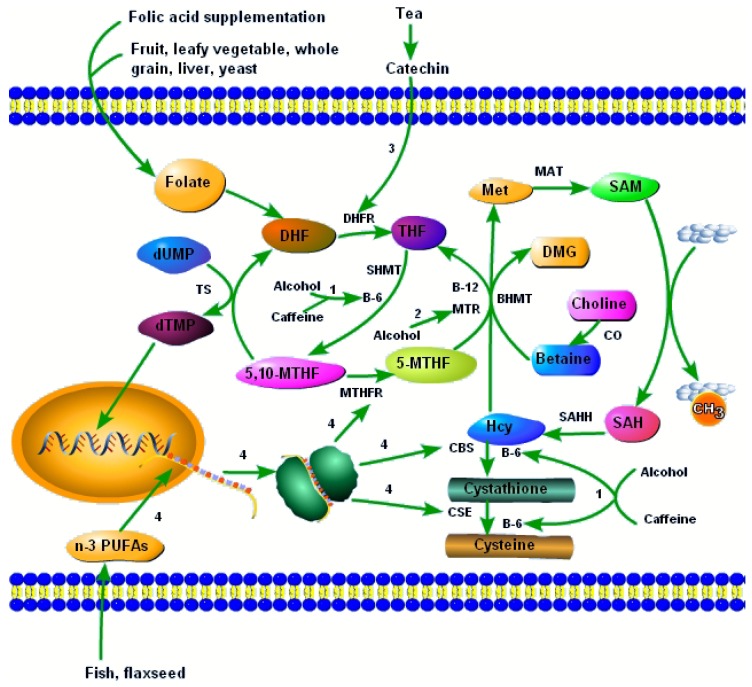Figure 1.
B vitamins and other dietary factors interact with the one-carbon metabolism to influence the development of NTDs. 1, alcohol and caffeine lower vitamin B-6, and thus disturb vitamin B-6–dependent one-carbon metabolism pathways; 2, alcohol reduces the activity of MTR, leading to increased Hcy and reduced SAM; 3, catechins in tea reduce the activity of DHFR, and hinder the synthesis of THF; 4, n-3 PUFAs increase the mRNA expression of enzymes involved in one-carbon metabolism, such as MTHFR, CBS, and CSE. Abbreviations: DHF, dihydrofolate; THF, tetrahydrofolate; 5,10-MTHF, 5,10-methylenetetrahydrofolate; 5-MTHF, 5-methyltetrahydrofolate; dUMP, deoxyuridine monophosphate; dTMP, thymidinemonophosphate; Hcy, homocysteine; Met, methionine; SAM, S-adenosylmethionine; SAH, S-adenosylhomocysteine; DMG, dimethylglycine; DHFR, dihydrofolate reductase; SHMT, serine hydroxymethyltransferase; MTHFR, methylenetetrahydrofolate reductase; MTR, 5-methyltetrahydrofolate-homocysteine methyltransferase; TS, thymidylate synthase; BHMT, betaine-homocysteine methyltransferase; MAT, methionine adenosyltransferase; SAHH, S-adenosylhomocysteine hydrolase; CBS, cystathionine-beta-synthase; CSE, cystathionine-gamma-lyase.

